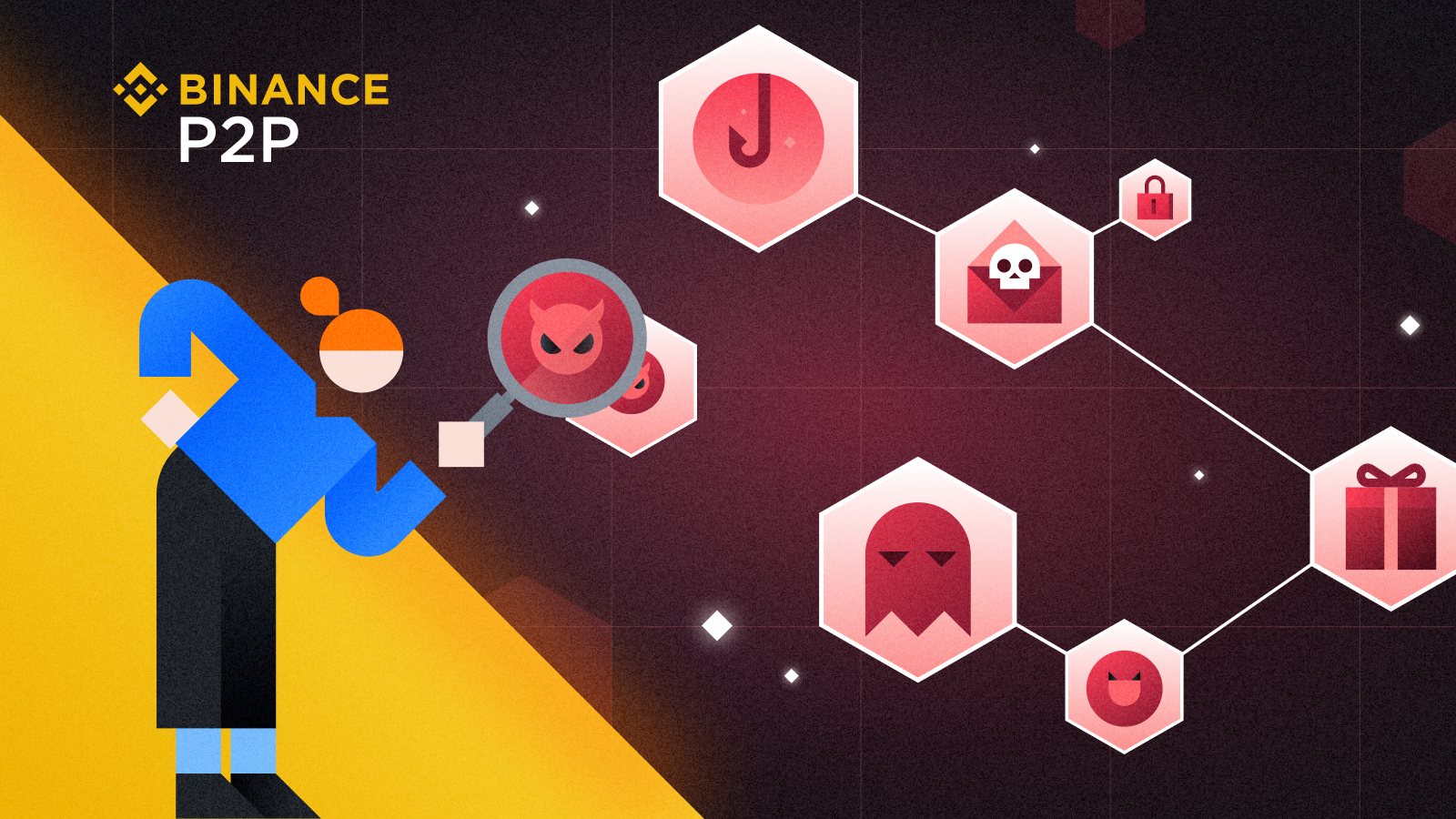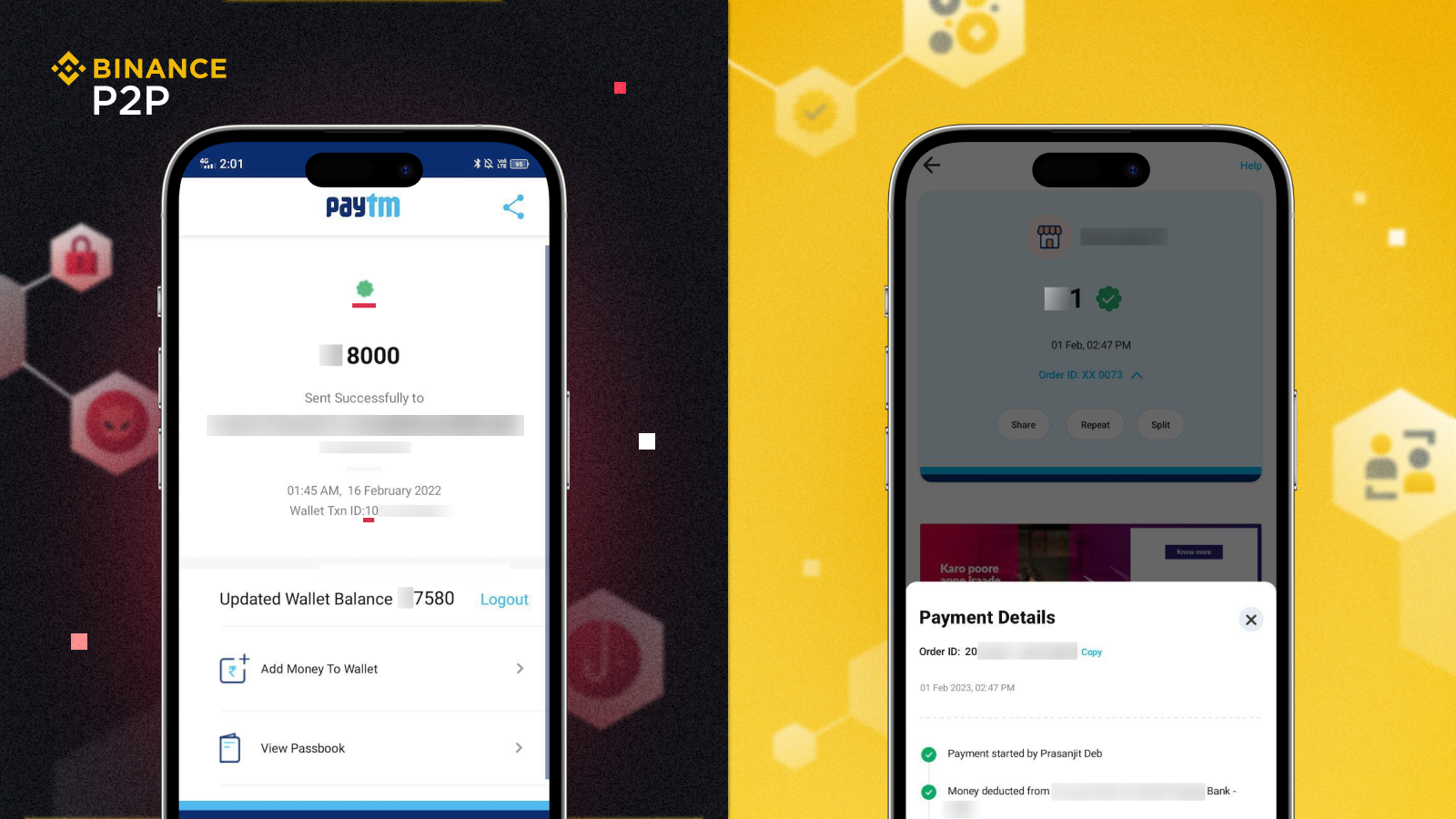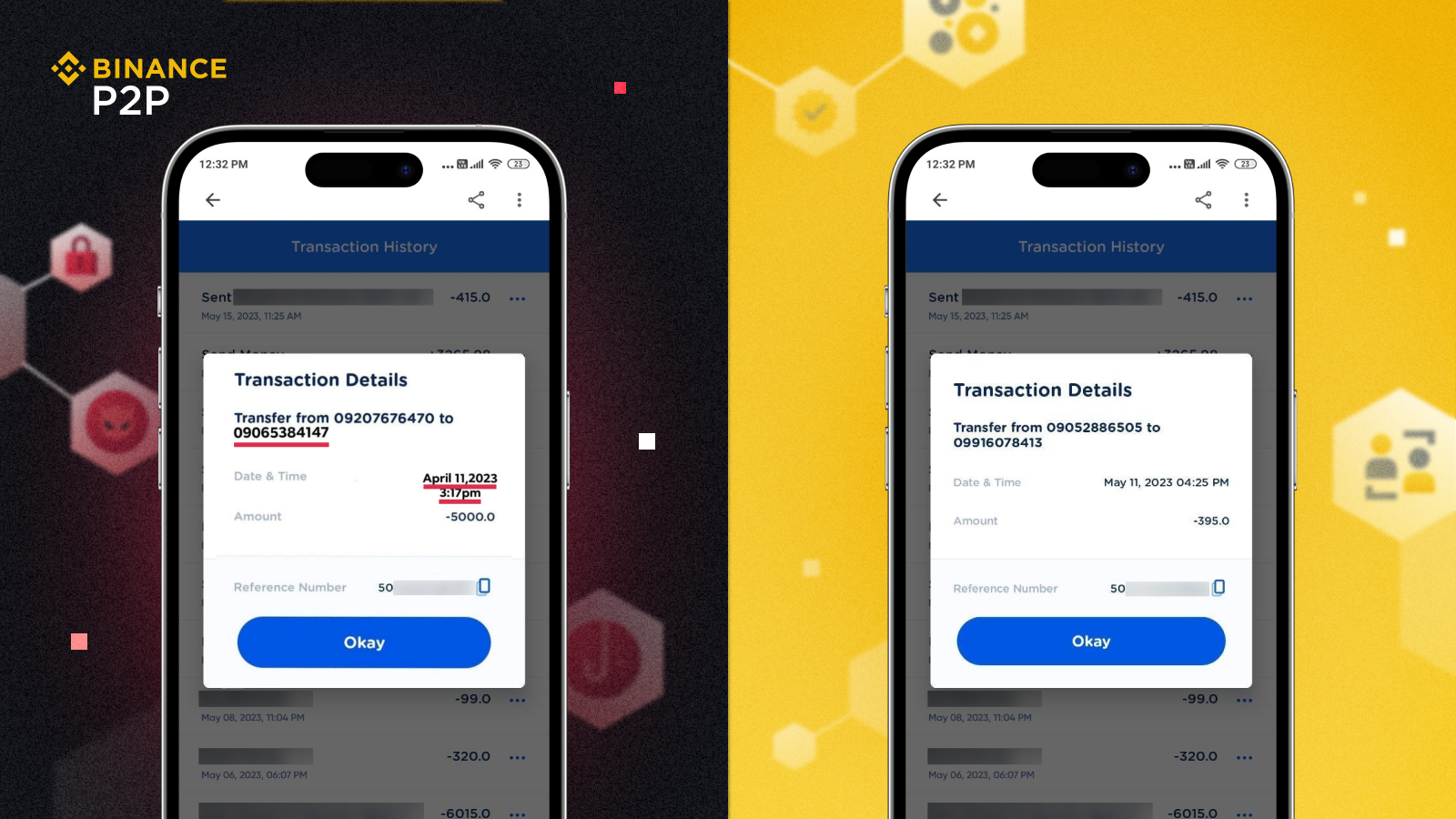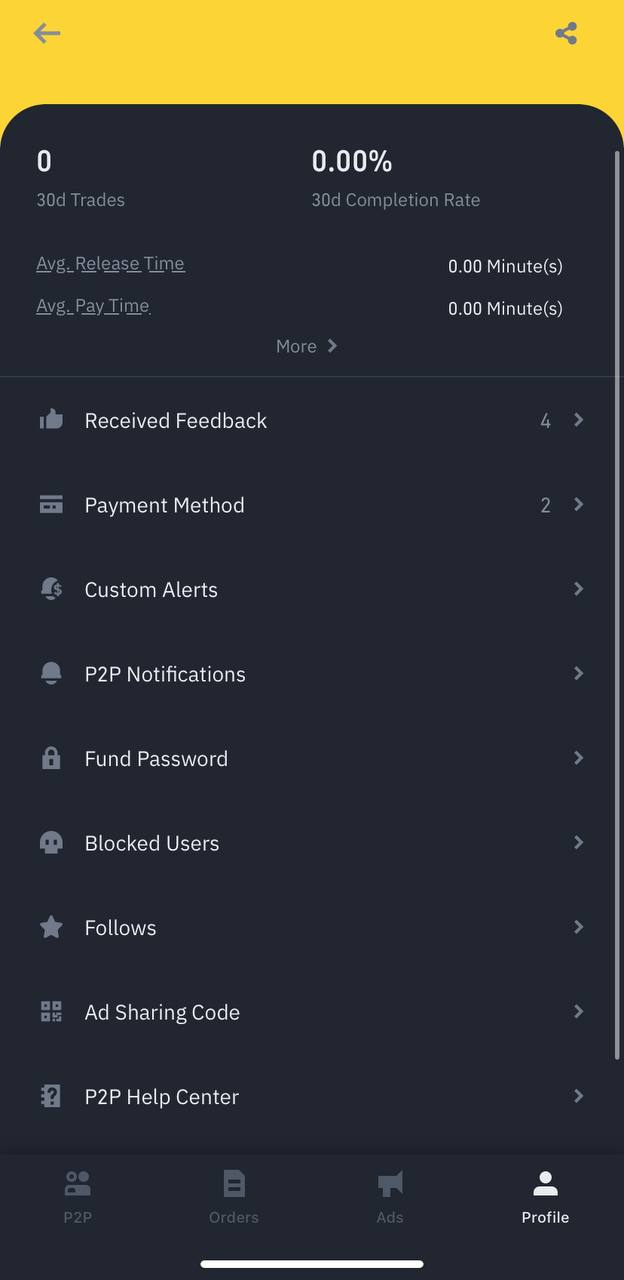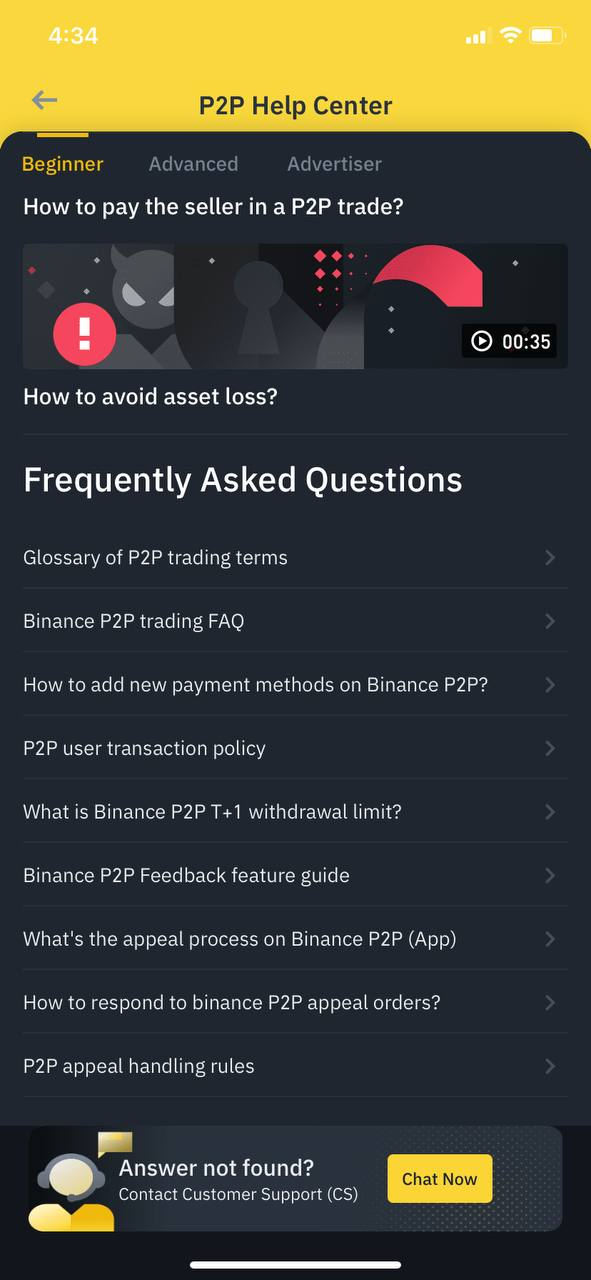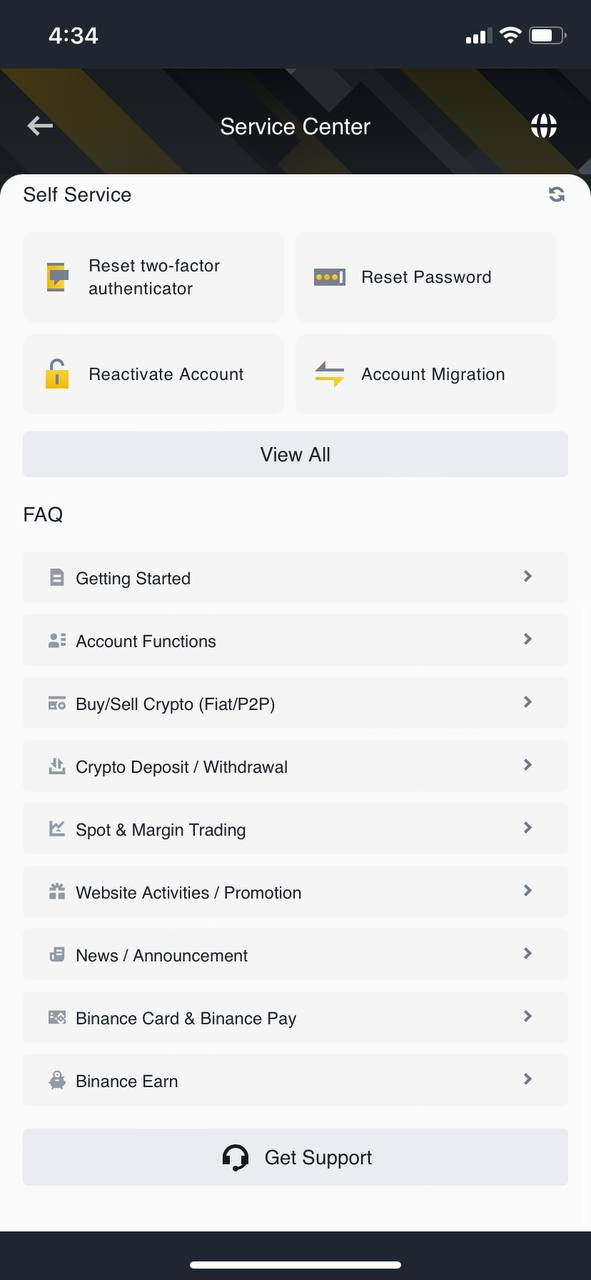Main Takeaways
In this article, you will learn about common crypto scams that occur on the peer-to-peer (P2P) market in developing countries, as well as how to identify and avoid them.
In particular, you will learn how to identify fake proofs of payment and how to handle chargeback scams.
At Binance P2P, we take the security of our users very seriously. As such, we want to make sure you’re aware of the most common P2P scams as well as how to avoid them.If you’ve been a victim of a scam or suspect you are being scammed in a P2P transaction, keep reading. Here are the most common scams and how to avoid them:Fake Proof of Payment
The fake proof of payment scam involves a counterparty sending you a fake receipt and pressuring you to release the crypto quickly without first verifying you have received the money in your account.
Fake proofs of payment are usually identifiable because they often contain characters of different sizes, fonts, and colors. Sometimes, the words are also superimposed. Here are some real-life examples.
Example 1
Example 2
Example 3
Example 4
Example 5
Always make sure to check your bank account or wallet to confirm you have indeed received the money due to you from a P2P transaction.
Paid but Canceled Scam
This scam starts with a user with limited transaction history placing a sell ad. Once a buyer accepts the order and makes the necessary payment, the seller does not release the order. They either claim that there is an OTP issue, that they are unable to release the order due to a technical glitch, or that they do not wish to sell the assets anymore.
The seller then requests for the buyer’s wallet address or Pay ID / UPI in order to refund the amount — but only if the buyer cancels the order. They then convince the counterparty to cancel the order and promise to immediately refund the amount paid. Alternatively, they claim that all their assets are locked in this open order and that they can refund the paid amount after the buyer cancels the order.
Once the buyer cancels the order, however, the seller does not refund the amount, causing the buyer to suffer a loss.
How to avoid this scam:
Do not cancel the order without first receiving your refund, no matter what the counterparty says.
If the counterparty says or does anything suspicious, raise an appeal and let the Binance support team handle it.
If the seller does not release the order after confirming they’ve received your payment, raise an appeal so our support team can release the order for you.
Chargebacks
In the context of P2P crypto transactions, a chargeback happens when a buyer requests their funds back after you’ve released the crypto to them and received your money. If this chargeback request on their payment method is successful, you’ll end up losing both the crypto you sold and the money you received.
Chargebacks are possible because some third-party payment options allow their users to reverse P2P transactions even after they’re completed. To justify their chargeback request, the counterparty may fabricate alibis, such as inconsistent account details.
How to avoid this scam:
Choose secure payment methods that don’t offer chargebacks.
Check the user's reputation for potential risks.
Verify your trade partner's name.
Don't accept third-party payment methods.
When you create an ad, make it clear in the terms that you don’t entertain third-party payments.
Ask to cancel the transaction if your trade partner insists on a third-party payment method.
If you receive a third-party payment, gather any information you can on the account that sent you the payment.
If you have already been a victim of a chargeback scam, contact Binance CS and request a receipt of the transaction so you can present proof of the transaction to the investigation authorities.
Alternatively, you email p2p@binance.com to request a receipt of the order for which the chargeback has been raised and CC the investigation officer. We will reply to your email with the order receipt.
To request an order receipt, all you need to do is:
Initiate a chat with the Binance Live Chat Support Team.
Share the Order ID on which you have received the chargeback request.
Your order receipt will be shared with you.
Binance CS Impersonation
This scam involves the seller asking the buyer to share their phone number and make payment for an order. Once the buyer does so, the seller calls the buyer while impersonating a Binance CS officer and asks them to cancel the order. Trusting the call to be from Binance, the buyer cancels the order and loses their money.
How to avoid this scam:
Do not share your personal information with any counterparty.
Remember that Binance CS will never contact you using your personal phone number regarding an ongoing order.
Any such suspicious call should be immediately reported to our Live Chat support team or to p2p@binance.com.
Triangle scam
This scam typically involves two scammers. For instance, one posts a sell ad on Binance P2P and a genuine buyer places an order of $100 on the ad, makes the payment, and shares proof of payment via an external channel instead of on the Binance P2P order chat. The first scammer (who posted the ad) then asks a second scammer to place an order of the same amount on the ad.
After this, they share the proof of payment from the genuine buyer with the second scammer via an external channel. The second scammer then shares the same payment proof on Binance chat, asking the first scammer (who posted the ad) to release the order. The first scammer releases the order to the second scammer, while the genuine buyer does not receive the crypto they paid for, nor their money back.
Never share payment proof outside Binance.
Get Started With Binance P2P
Ready to start trading on Binance P2P? Register for a new Binance account or download the Binance app. Once you've completed the identity verification process, you can start buying and selling crypto on the Binance P2P marketplace.Further Reading
Disclaimer: Your use of Binance P2P services and all information and other content (including that of third parties) included in or accessible from Binance P2P services is at your sole risk. Our only responsibility is to handle crypto transactions. All payments are final upon completion unless otherwise required by law. The Binance P2P platform has neither the right nor obligation to resolve any disputes arising from a completed payment. Neither the Binance P2P platform nor its merchants shall be responsible for any loss after a completed payment.
